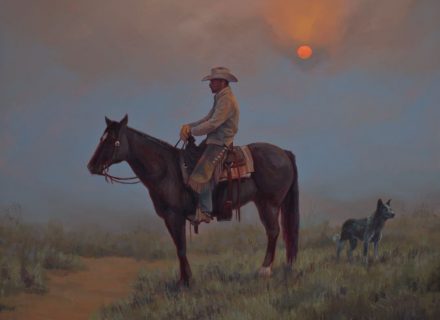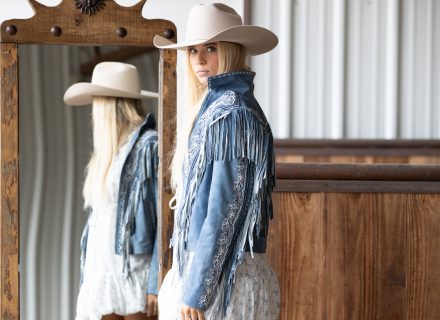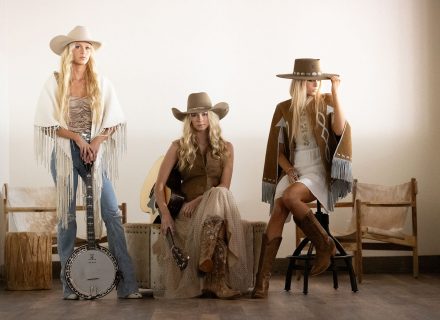The Oscar-winning actor rode tall in classic Westerns.
During his decades-long career in film and television, Lee Marvin played everything from a badass Chicago cop in the 1957-60 TV series M Squad to the demanding leader of convicts pressed into service for a guerrilla mission in The Dirty Dozen (1967) to the guilt-racked traveling salesman Hickey in John Frankenheimer’s 1973 film of Eugene O’Neill’s The Iceman Cometh.
But as we celebrate his centennial — he was born Feb. 19, 1924 in New York City — we remain most impressed by Marvin’s work in Westerns. Here are some of the late Oscar-winner’s best efforts in the genre.
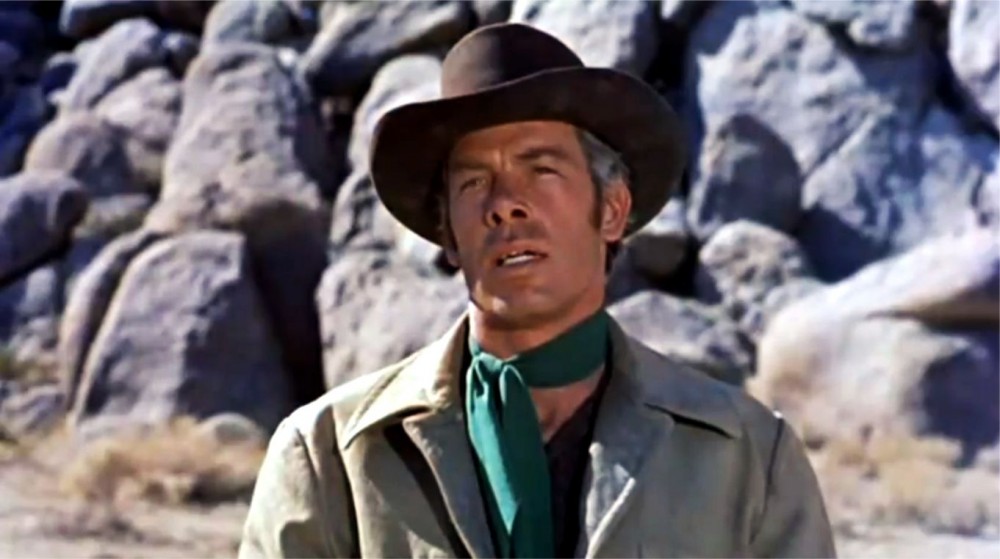
SEVEN MEN FROM NOW (1956)
Director Budd Boetticher gave Marvin a major visibility-raising career boost by casting him as Bill Masters, the untrustworthy frenemy of a vengeful man (Randolph Scott) hunting the bandits who killed his wife while robbing a Wells Fargo freight station. As Boetticher wrote in his memoir, he and screenwriter Burt Kennedy “agreed that Western heavies over the years had been portrayed as much too heavy. They rode black horses and wore black hats. You never saw anything good about any of them. Well, we set out to make our villains extremely attractive. Sure they were going to get killed — eventually — by our hero, but we wanted our audience to really love ‘em while they were still kickin’.”
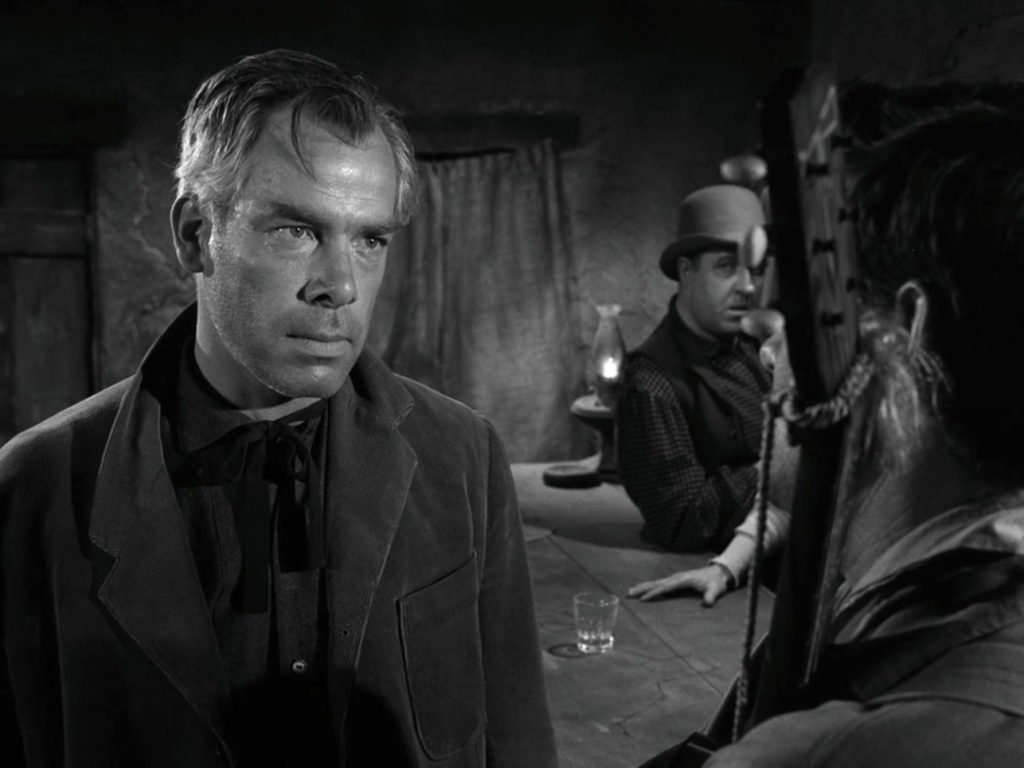
TWILIGHT ZONE: “The Grave” (1961)
One year before he engaged in outlawry with Lee Van Cleef and Strother Martin, Marvin appeared opposite those cult-fave character actors in one of the spookiest Old West episodes ever to air as part of Rod Serling’s iconic anthology series. He played Conny Miller, a gunman who arrives in a small town too late to kill a bothersome bad guy that the townspeople had commissioned him to eliminate. Before his untimely demise, the bad guy promised to rise up and grab Miller if the latter ever visited his grave. Marvin conveys equal measures of braggadocio and trepidation as Miller is more or less shamed into accepting the challenge. Nothing good comes of this.
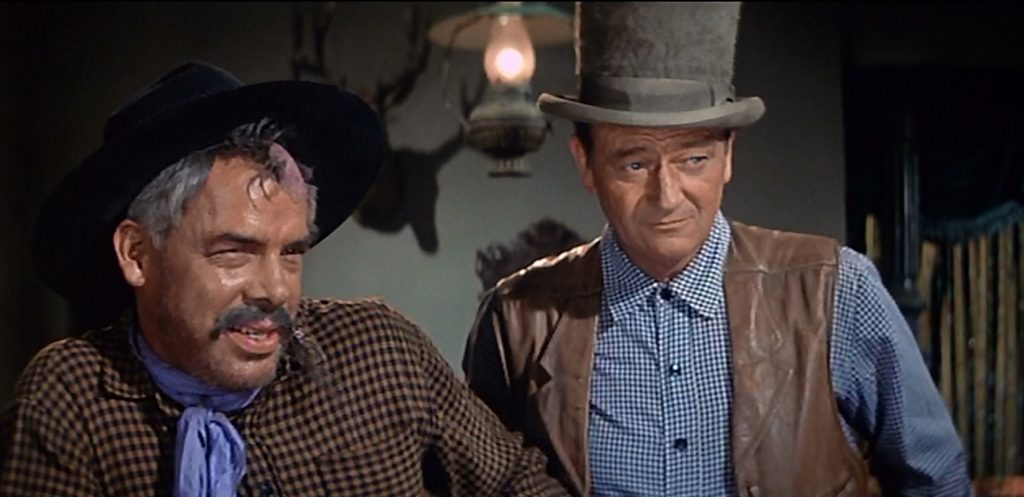
THE COMANCHEROS (1961)
Marvin proved to be the perfect match for John Wayne in the final film directed by Hollywood great Michael Curtiz (Casablanca). Wayne played Jake Cutter, a Texas Ranger on the trail of white renegades — Comancheros — who are selling liquor and guns to the marauding Comanche. “Lee Marvin,” wrote the film critic for the showbiz trade paper Variety, “makes a vivid impression in a brief, but colorful, role as a half-scalped, vile-tempered Comanchero agent.” Agreed.
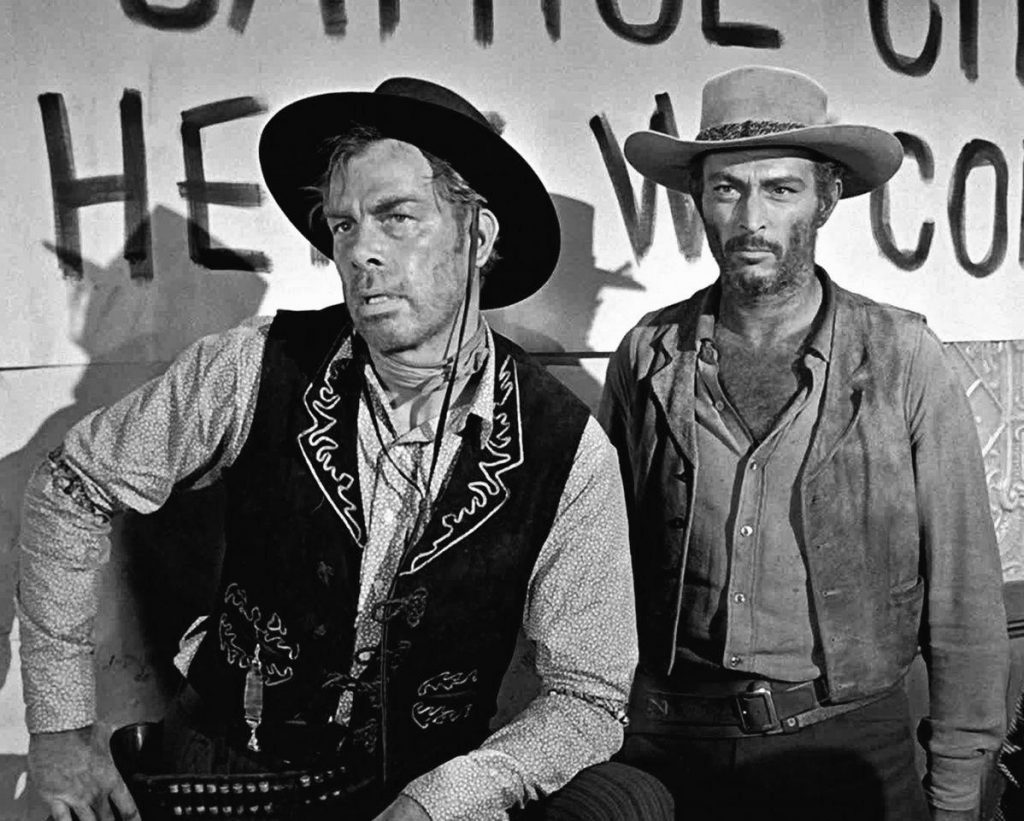
THE MAN WHO SHOT LIBERTY VALANCE (1962)
John Wayne and James Stewart star as, respectively, a straight-shooting hero and a tenderfoot lawyer, in director John Ford’s last great Western, but Marvin steals every scene that isn’t bolted to the floor as Liberty Valance, an outlaw who (with a little help from minions played by Strother Martin and Lee Van Cleef) rules a frontier town with a whim of iron. In his book Lee Marvin: Point Blank, biographer Dwayne Epstein aptly wrote: “When Marvin took the stage as Ford directed, the actor obliterated any previous image of a villain in a John Ford opus. In just a handful of riveting scenes he conveyed the anger, maliciousness and sadism of a man who symbolized all the lawlessness of the old west, and who refused to step gently aside to encroaching civilization.”
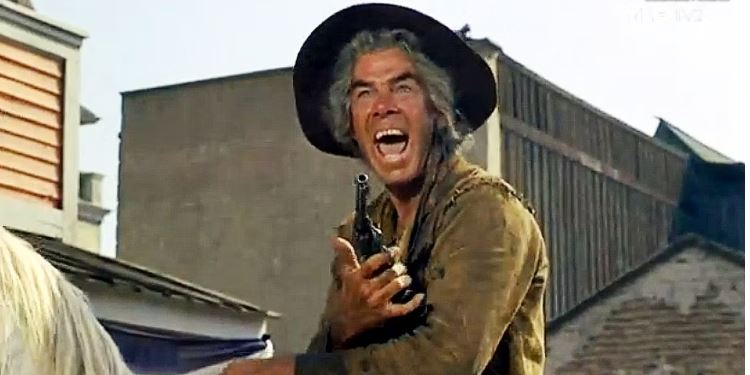
CAT BALLOU (1965)
Much like John Wayne finally won his long-overdue Academy Award by kinda-sorta spoofing himself in True Grit (1969), Marvin brought home the gold for his hilariously self-satirical portrayal of Kid Shelleen, a hard-drinking gunman who moderates his alcohol intake just long enough to help the titular schoolteacher-turned-outlaw (Jane Fonda) avenge the murder of her rancher father. (Marvin also played Shelleen’s brother, tin-nosed hired killer Tim Strawn, but that guy wasn’t funny at all.) The most famous image in Cat Ballou — Shelleen and his equally drunken horse leaning against a wall at an inopportune time — continues to amuse as an Internet meme. But the funniest scene in this very funny comic Western involves Shelleen’s enthusiastic but inopportune singing of “Happy Birthday.”
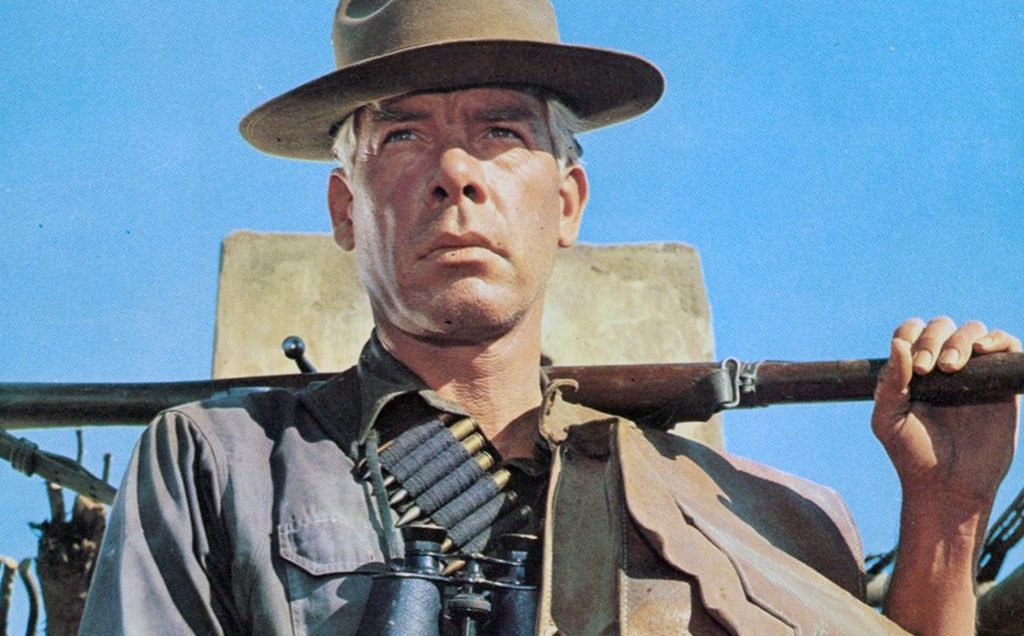
THE PROFESSIONALS (1966)
Marvin is at his steely-eyed, take-no-BS best in writer-director Richard Brooks’ classic as Henry Fardan, the leader of uniquely talented mercenaries (Burt Lancaster, Robert Ryan and Woody Strothers are the others) hired by a wealthy rancher (Ralph Bellamy) to retrieve his wife (Claudia Cardinale), who’s been kidnapped by a Mexican revolutionary (Jack Palance). Even after they discover that the wife wasn’t really kidnapped, the mercenaries persist in their mission because, well, professionals do the job they’re paid to do. There are some amusing moments of comic relief as characters trade wisecracks, insults and other barbed remarks. But Marvin also conveys a moral dimension without seeming preachy, and an impatience with stupidity without being short-tempered. When Bellamy asks if he has “any objections to working with a Negro” (Strode), Marvin waits a few seconds before speaking — but his expression is easy to read: “What the hell kind of damn fool question is that?” When he finally does speak, he pointedly ignores Bellamy’s query — because there are far more important matters to discuss.
PAINT YOUR WAGON (1969)
Marvin really never had another role quite like Ben Rumson, a hearty and boozy prospector given to wanderlust, bouts of melancholy, and… singing. Critics initially were unkind to director Joshua Logan’s lavish adaptation of the 1951 Broadway musical by Alan Jay Lerner and Frederick Loewe about a singular romantic triangle (Clint Eastwood and Jean Seberg played the other parties involved) in a mining boomtown during the California Gold Rush. Over the years since its theatrical release, however, audiences have warmed to the movie, and to Marvin’s sly balance of boisterous silliness and poignant seriousness. And yes, they’ve also come to enjoy Marvin’s gravelly rendition of the song “Wand’rin’ Star” — which actually was a UK Top 40 hit in 1970.
MONTE WALSH (1970)
Marvin gave one of his finest performances — not one of his finest performances in a Western, but one of his finest performances, period — in this autumnal drama based on a novel by Jack Schaefer (Shane) about two aging cowboys, Monte Walsh (Marvin) and Chet Rollins (Jack Palance), who reluctantly acknowledge that their way of life is drawing to a close. The film also is notable for being giving Marvin his first and only opportunity to have a true romantic relationship on camera — with legendary French actress Jeanne Moreau (Jules and Jim), perfectly cast as a prostitute and saloon girl with serious health issues. There have long been rumors that the romance continued off-camera for the couple, but neither ever commented publicly on their relationship. For the record, however, Moreau did compliment her co-star in a 1974 interview: “He says more in less words, sometimes in no words at all, than any other American actor I’ve ever met.” True enough.
This article appears in our April 2024 issue.
Get more C&I content on Instagram, Facebook, TikTok, Pinterest, and LinkedIn.














